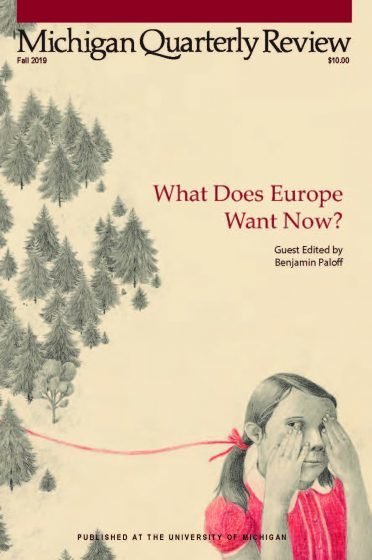Jeremiah Chamberlin
Jeremiah Chamberlin teaches in the Department of English at the University of Michigan. He is a Contributing Editor for Poets & Writers Magazine and the Editor-in-Chief of Fiction Writers Review. His work has appeared in Absinthe, Flyway, Glimmer Train, Granta, Michigan Quarterly Review, VQR, Vagabond, and elsewhere. He has taught for the College Year in Athens program and for Semester at Sea. In 2017, he was a Fulbright Research Scholar in Bulgaria.
Artist Statement
My artistic practice is shaped by curiosity. As Don DeLillo once famously said in a Paris Review interview, “Writing is a concentrated form of thinking. I don’t know what I think about certain subjects, even today, until I sit down and try to write about them.”
It is this same motivation that has drawn me to travel writing and writing about other people and places. And yet, I’m aware of the ethical dilemmas of writing about a culture not one’s own. Just as Ariella Azoulay has written on the topic of the civil contract of photography, in which the subject poses and engages with the photographer with the understanding that it is for dissemination rather than the photographer simply “taking” a picture, the power dynamic and negotiated terms between writer and subject must be constantly negotiated when an outsider attempts to engage with a place or people to which they don’t have familial, cultural, or historical ties. As such, curiosity can be a guiding principle, but it can’t entirely bridge the gaps that necessarily exist between artist and subject.
That is a good thing. A necessary thing, in fact. Not simply because the recognition of incompleteness subverts the idea that “understanding” is a goal—let alone attainable—but because it underscores the notion that getting the story is the story. By orienting one’s creative energy toward process, I’m attempting to prioritize engagement and synthesis in my work rather than viewing it as a product.
At Tusen Takk
During Jeremiah’s residency at Tusen Takk, he will be working on a book-length nonfiction project, based on the year that he spent living and traveling in Bulgaria while on a Fulbright fellowship. Inspired by iconic travelogues of Eastern Europe such as Rebecca West’s Black Lamb and Grey Falcon and Patrick Leigh Fermor’s The Broken Road, his book is similarly structured as a braided narrative, weaving his travels together with Bulgaria’s cultural, political, and literary history.
There is also a deeply personal element to the project, which involves examining his own personal history. Because what he found more and more as he traveled through Bulgaria was not foreignness, but echoes and resonances of northern Michigan, where he grew up—both in terms of geography and the experiences of the people who live there. Jeremiah looks forward to the opportunity to be able to situate himself in this landscape as he continues working to uncover the complicated intersections of place and identity, loyalty and belonging.
Public Program




